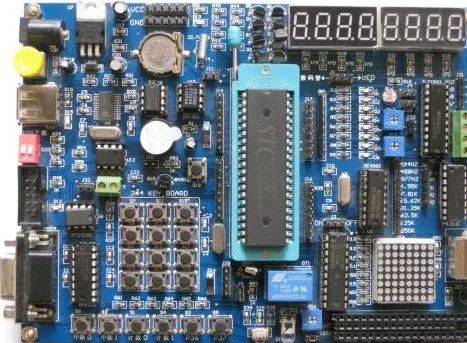1. What are the advantages and disadvantages of C language and assembly language when developing microcontrollers?
A: Assembly language is a low-level programming language that uses mnemonic codes to represent machine instructions, making it very close to the actual machine code. Its main advantage is that it uses minimal system resources and offers high execution speed. However, because each CPU architecture has its own unique assembly language, programs written in assembly are not easily portable across different platforms.
C language, on the other hand, is a high-level structured programming language known for its readability, portability, and ease of use. It is widely used in software development due to its rich libraries and efficient compilation process. However, compared to assembly, C may consume more memory and processing power, and its execution efficiency might be lower in resource-constrained environments like 8-bit microcontrollers (MCUs).
For 8-bit RISC-based MCUs, where internal ROM, RAM, and stack space are limited, using C can lead to issues such as insufficient memory or stack overflow, especially if the compiler is not optimized. Some MCU manufacturers also do not provide a C compiler. In contrast, assembly allows for precise control over every instruction, making it easier to manage program size, stack usage, and debugging. Therefore, for small-scale or highly optimized projects, assembly is often preferred in microcontroller development.

2. Can C++ be used for microcontroller development instead of C or assembly?
A: While C++ is a powerful object-oriented language, it is rarely used in microcontroller development. Most MCU projects still rely on either C or assembly language due to their efficiency and direct hardware control. C++ introduces overheads like virtual functions and runtime type information, which are not suitable for resource-limited systems.
3. Is it necessary to learn C for microcontroller development?
A: Yes, learning C is essential for most microcontroller projects. It provides a balance between high-level abstraction and low-level control, allowing developers to write efficient and maintainable code. Although assembly is still used in specific cases, C is the most common choice due to its portability, extensive library support, and widespread use in embedded systems.
4. When working on complex projects with tight deadlines, should you still use assembly?
A: For complex and time-sensitive projects, C is generally preferred. However, it's important to have a good understanding of the MCU’s C compiler, including supported data types, algorithms, and special functions. Different manufacturers may have different compiler behaviors, so debugging can become challenging without proper knowledge. In some cases, assembly might still offer better performance, but this requires deep expertise.
5. Should beginners start with C or assembly?
A: Beginners are usually advised to start with assembly. It helps them understand the inner workings of the microcontroller, such as how each instruction affects the system. This foundational knowledge is crucial for mastering more advanced topics later on.
6. I'm a junior student who has studied electronics, digital logic, assembly, interfaces, and C, but I feel confused and unsure if I can do anything. What should I do?
A: It's common for students to feel this way, especially when theory doesn't match practice. Focus on hands-on experience by participating in lab sessions, building simple projects, and following online tutorials. Reading technical magazines, joining design competitions, and working in teams will help you gain real-world skills. Remember, experience builds gradually—keep practicing and stay curious.
7. How can a student learn to master microcontrollers effectively?
A: Practice is key. If your university offers practical courses, take full advantage of them. Try to build small systems using available components, and explore online forums and communities for inspiration. Understanding both software and hardware is essential, so don’t neglect circuit design and electronics basics. The more you experiment, the faster you’ll improve.
8. How can one become an expert in microcontroller development?
A: Becoming a master requires consistent practice, staying updated with industry trends, and continuously learning from online resources. Engage with developer communities, read documentation, and work on real-world projects. The more you challenge yourself, the more skilled you’ll become over time.
9. Are women suitable for microcontroller software programming?
A: Absolutely. Programming is a skill that anyone can learn, regardless of gender. Success depends on interest, patience, and dedication, not on being male or female.
10. Is learning ARM and embedded systems more useful than learning general-purpose microcontrollers? What should a beginner know?
A: ARM is ideal for advanced applications like smartphones and PDAs, while 8-bit MCUs are more suited for industrial control and consumer devices. For beginners, starting with 8-bit MCUs like the 8051 or Holtek series is recommended. You should have a basic understanding of assembly language, RISC architecture, and I/O interface applications. Combining software and hardware knowledge will give you a solid foundation for future development.
HP Probook 440 445 G8,M23770-B31,M23769-001,M23770-001
S-yuan Electronic Technology Limited , https://www.syuanelectronic.com